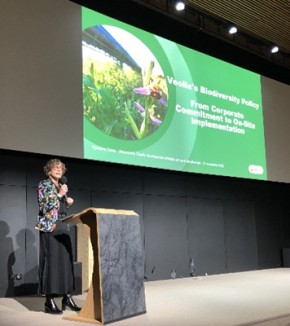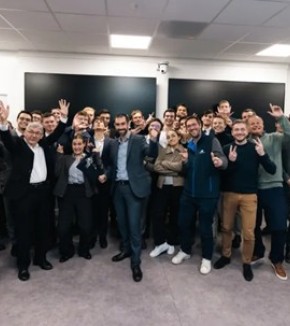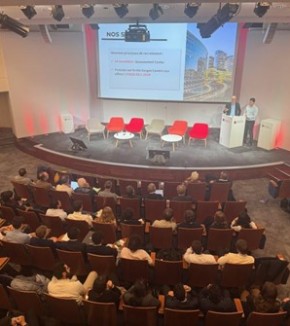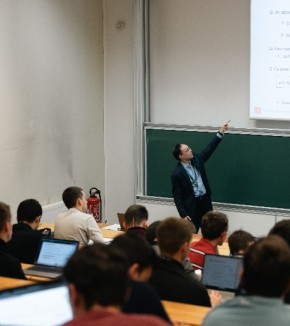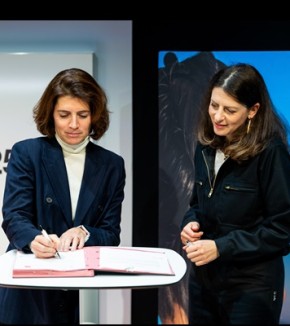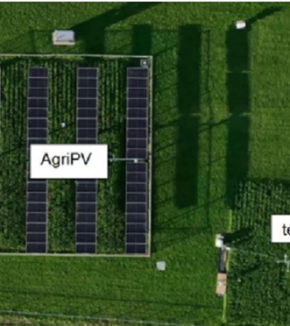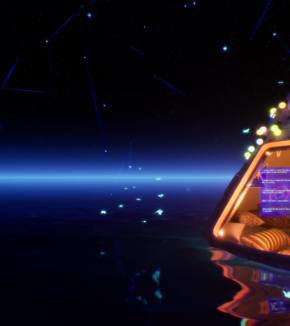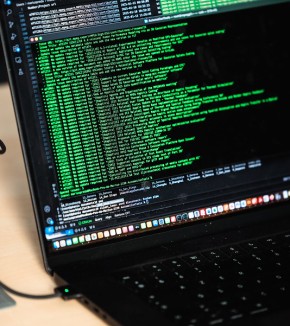Inauguration of the Chair "Physics of high energy densities and inertial fusion"
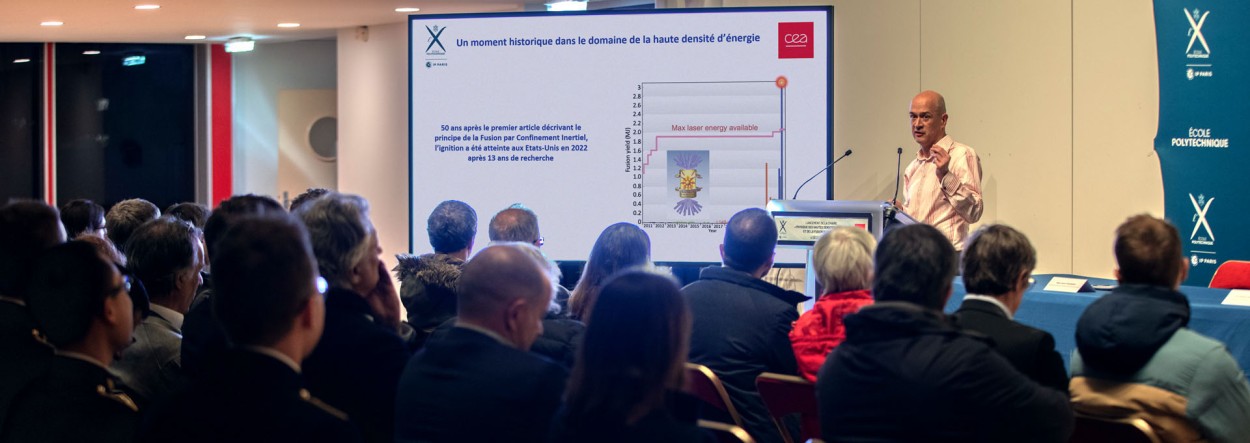 Lancement de la Chaire « Physique des hautes densités d’énergie et de la fusion inertielle » le 4 décembre 2023. Le contenu scientifique a été présenté conjointement par Sébastien Le Pape (LULI*) et Emeric Falize (CEA). (Figure : Daniel Casey/LLNL)
Lancement de la Chaire « Physique des hautes densités d’énergie et de la fusion inertielle » le 4 décembre 2023. Le contenu scientifique a été présenté conjointement par Sébastien Le Pape (LULI*) et Emeric Falize (CEA). (Figure : Daniel Casey/LLNL)
The École Polytechnique and the Military Applications Division of CEA are launching a teaching and research chair in "Physics of high energy densities and inertial fusion". This sponsorship was inaugurated on 4 December 2023 in the presence of Laura Chaubard, Acting President and Director General of the École Polytechnique, and Vincenzo Salvetti, Director of Military Applications at the CEA.
The Chair "Physics of High Energy Densities and Inertial Fusion", headed by Sébastien Le Pape, researcher and director of the Laboratoire pour l'Utilisation des Lasers Intenses (Intense Lasers Laboratory LULI*), aims to meet a high-level strategic and academic challenge for France's defence and energy policy.
On the one hand, the École Polytechnique is now one of the world's leading players in the field of high-energy-density physics, both in terms of its staff and its laboratories, including the LULI. On the other hand, the physics of high energy densities and thermonuclear fusion is a strategic field for the Military Applications Division of CEA, which aims to have world-class models and calculation codes to describe this physics.
The goal of this Chair is to crystallise the expertise of the École Polytechnique and the CEA, to build a research centre with even greater international influence. It aims to facilitate the emergence of new collaborations on promising themes, such as magnetised plasmas, through short stays by visiting researchers and a series of seminars. It will also help to increase the number and quality of high-level students trained in high-energy density physics in France, who are likely to continue their training and professional careers in this scientific field.
More specifically, the Chair plans to set up a new introductory course in the physics of high energy densities, offered to 3rd year Polytechnique engineering students. Designed with a view to developing the attractiveness of the professions to the student community, the course will be based on collaborative projects in which students will have access to cutting-edge equipment. The Chair's research axis aims to develop an academic centre of excellence in the field of hot plasma physics, by supporting original experimental projects, funding a research team, research visits and seminars to initiate international collaborations and deepen knowledge of atomic physics in plasmas, laser-matter interaction, and radiative hydrodynamics.
These concepts are useful in laboratory astrophysics, a discipline that involves studying astrophysical phenomena using scientific installations in the laboratory, identifying the similarities between the experiment and what actually happens in space. Another application is fusion by (magnetic or inertial) confinement, a process that creates the conditions needed for nuclear fusion, the same reaction that produces energy at the heart of stars and that could one day be used to produce electricity.
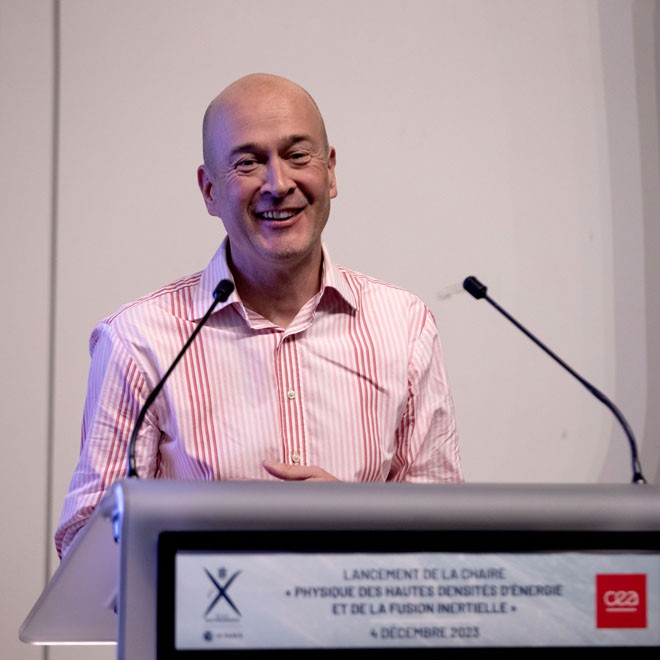
"This Chair is being launched at a time of great excitement in the field of high-energy-density physics, particularly following the reach of Ignition in the United States in 2022. It will give us the resources to train the scientists of tomorrow in close collaboration with specialists in the field at the Military Applications Division of CEA. By funding research initiatives, it will also enable LULI and the École Polytechnique to consolidate their position as academic leaders," says Sébastien Le Pape, Scientific Director of the new Chair.
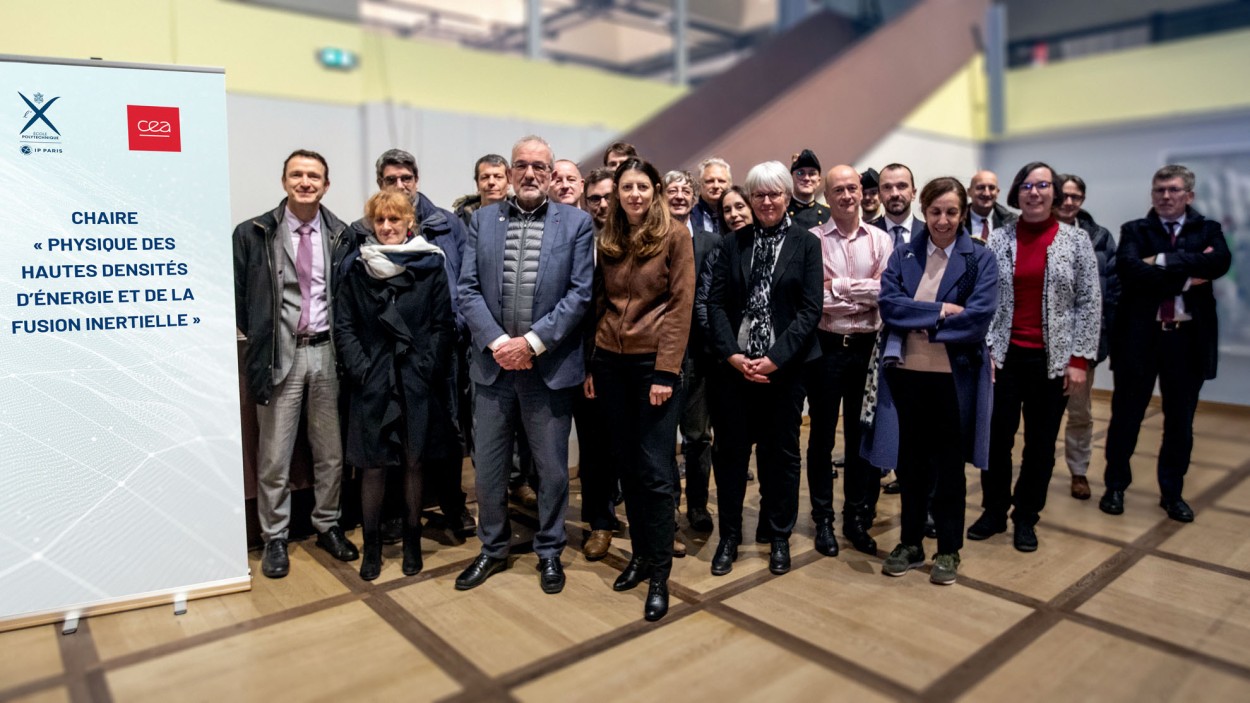
 Support l'X
Support l'X 